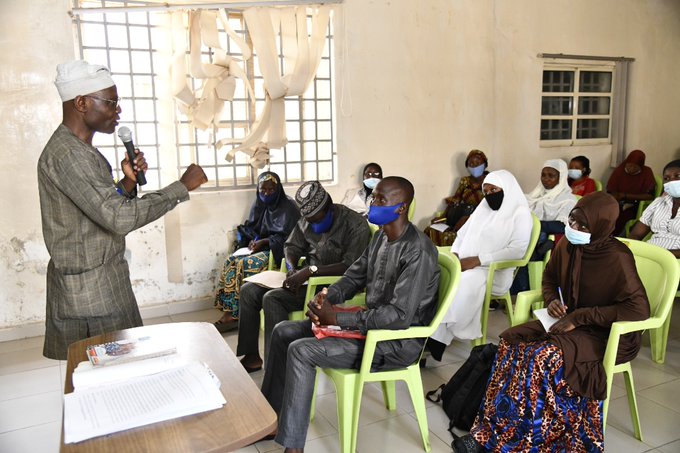Kwara inducts 130 health workers
The Kwara State Government has began the induction of at least 130 health workers who were recently recruited into the state civil service. At the induction ceremony for the new workers in General Hospital, Ilorin, Director-General of the Kwara State Hospital Management Bureau, Dr Sa’ad Aluko, said the induction is a step meant to improve patient-to-health […]

The Kwara State Government has began the induction of at least 130 health workers who were recently recruited into the state civil service.
At the induction ceremony for the new workers in General Hospital, Ilorin, Director-General of the Kwara State Hospital Management Bureau, Dr Sa’ad Aluko, said the induction is a step meant to improve patient-to-health giver ratio and better medical service delivery in the state.
“We have recruited at least 90 nurses, 19 doctors and at least 20 other allied workers. All together, we are recruiting into primary and secondary health facilities and the number will keep increasing,” he said.
“His Excellency saw the need for us to improve healthcare services in the state. He saw the need to repair more of our hospitals and he is a strong believer that the hospitals will not just run itself. That will even increase our services. So, our services have been increasing. People are having more confidence in our services and this has increased patients’ patronage.”
Aluko, who commended the strides of the AbdulRahman AbdulRazaq’s administration in the sector, urged the new health workers to deliver on their mandate which is to save lives.
“As professionals, we are to serve the people of the state in the capacities we have been employed for. It is important you know the civil service rules. It is important for you to understand your roles in the state hospitals and save lives. Your role here is to have empathetic nursing care to our people,” he said.
“Essentially, every single individual appointed into the service has family members who access healthcare in our hospitals. So, as you start working with us, you are also serving your people. We all know the attitude of public institutions when it comes to nursing care. So, we want our people to have more confidence in our health institutions. We want a situation where patients will come to our hospitals and be happy with the way we have treated them. We want a situation where our patients will be treated more humanely. That is what we referred to as empathetic nursing care.
“This is a new era. We have an administration that cares about the people. You are ambassadors of the state government. You are to be of best behaviour at all times. You are to let patients know that they are valued and important and as tax payers they deserve the best treatment. So, we will take you through the ethics and standard we expect in the state.”
Director of Nursing Services, Mrs Florence Adeniran, said the inductees are meant to enhance healthcare delivery in the state.
“We expect them to perform well because structures are already on ground. But without structures and without Human Resources, nothing can happen. Now that the state government is employing doctors, nurses and other health workers, we hope healthcare services and and health system are going to improve,” she said.
“The induction is to let them know what is expected of them in the service. They are to care for our patients. We expect the inductees to work with the vision of Governor AbdulRahman AbdulRazaq in ensuring qualitative and accessible health care delivery.”
Director of Medical Services at the Health Management Board Dr Femi Johnson said: “Nothing is more laudable than the government recruiting medical professionals into the service. You will notice since the beginning of this administration that one of the key areas that the government has interest is health sector. At General Hospital Ilorin, there are several places under renovation. Currently, we are planning for Cardio-renal unit at General Hospital Ilorin. We have secured approval for postgraduate programme for doctors in family medicine and obstetrics and gynaecology.”
